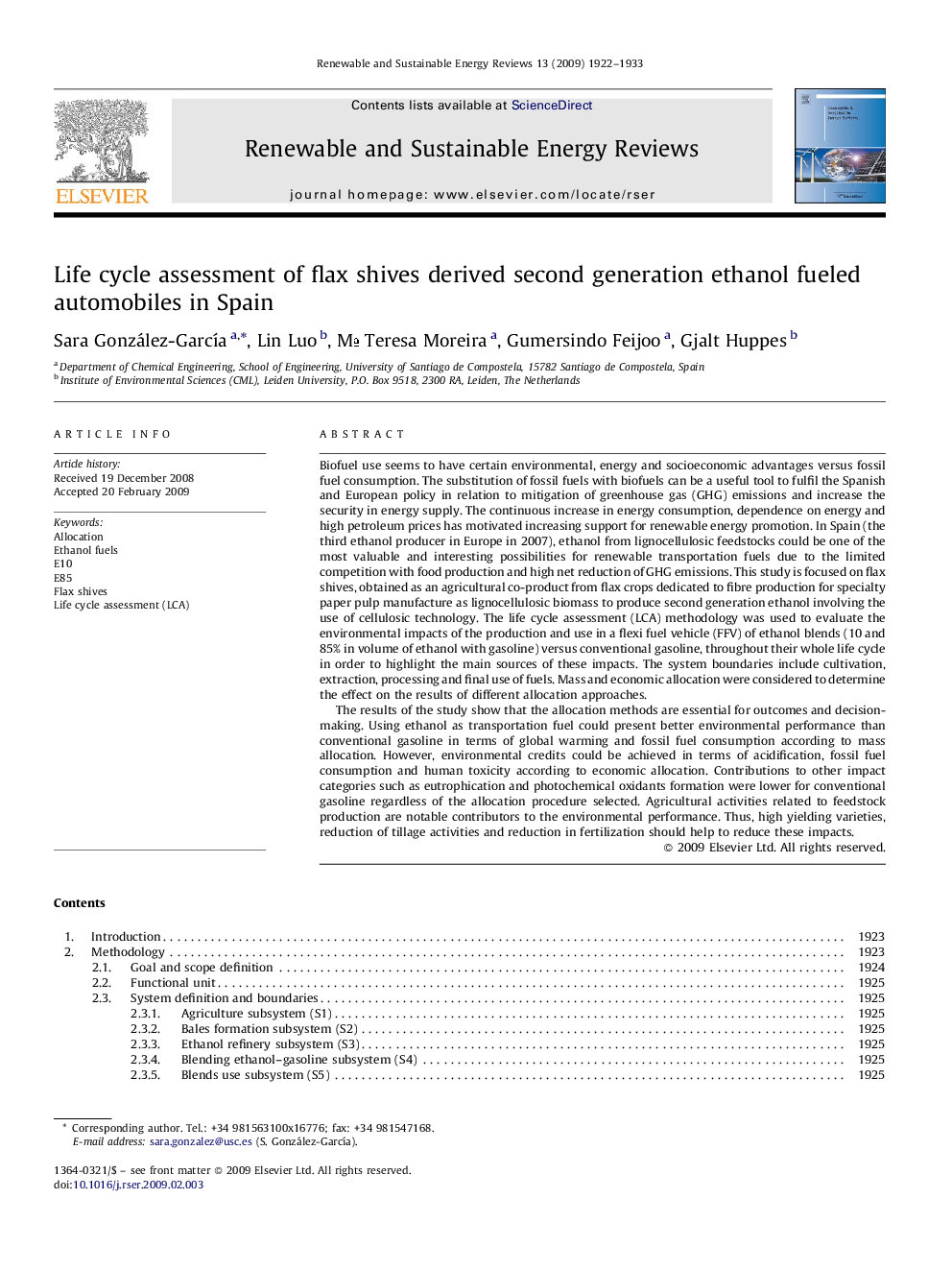| کد مقاله | کد نشریه | سال انتشار | مقاله انگلیسی | نسخه تمام متن |
|---|---|---|---|---|
| 1751999 | 1018430 | 2009 | 12 صفحه PDF | دانلود رایگان |

Biofuel use seems to have certain environmental, energy and socioeconomic advantages versus fossil fuel consumption. The substitution of fossil fuels with biofuels can be a useful tool to fulfil the Spanish and European policy in relation to mitigation of greenhouse gas (GHG) emissions and increase the security in energy supply. The continuous increase in energy consumption, dependence on energy and high petroleum prices has motivated increasing support for renewable energy promotion. In Spain (the third ethanol producer in Europe in 2007), ethanol from lignocellulosic feedstocks could be one of the most valuable and interesting possibilities for renewable transportation fuels due to the limited competition with food production and high net reduction of GHG emissions. This study is focused on flax shives, obtained as an agricultural co-product from flax crops dedicated to fibre production for specialty paper pulp manufacture as lignocellulosic biomass to produce second generation ethanol involving the use of cellulosic technology. The life cycle assessment (LCA) methodology was used to evaluate the environmental impacts of the production and use in a flexi fuel vehicle (FFV) of ethanol blends (10 and 85% in volume of ethanol with gasoline) versus conventional gasoline, throughout their whole life cycle in order to highlight the main sources of these impacts. The system boundaries include cultivation, extraction, processing and final use of fuels. Mass and economic allocation were considered to determine the effect on the results of different allocation approaches.The results of the study show that the allocation methods are essential for outcomes and decision-making. Using ethanol as transportation fuel could present better environmental performance than conventional gasoline in terms of global warming and fossil fuel consumption according to mass allocation. However, environmental credits could be achieved in terms of acidification, fossil fuel consumption and human toxicity according to economic allocation. Contributions to other impact categories such as eutrophication and photochemical oxidants formation were lower for conventional gasoline regardless of the allocation procedure selected. Agricultural activities related to feedstock production are notable contributors to the environmental performance. Thus, high yielding varieties, reduction of tillage activities and reduction in fertilization should help to reduce these impacts.
Journal: Renewable and Sustainable Energy Reviews - Volume 13, Issue 8, October 2009, Pages 1922–1933